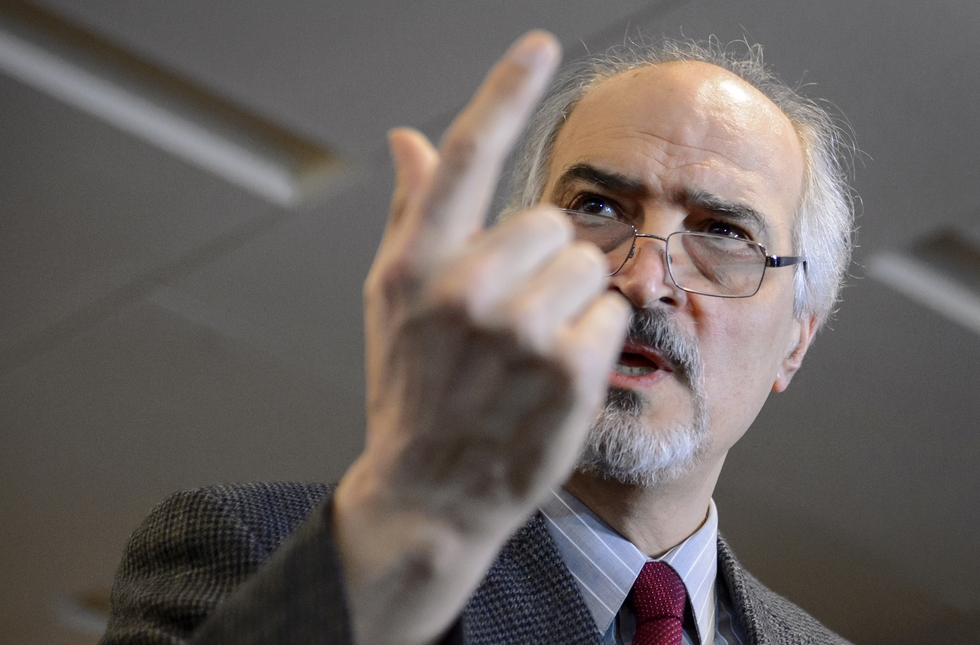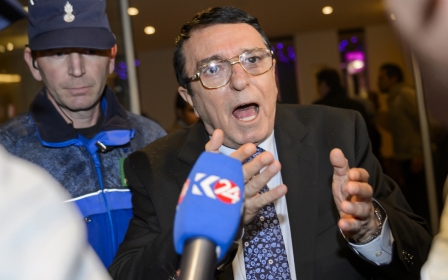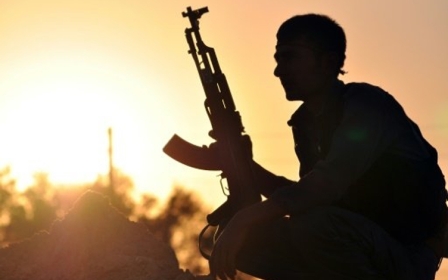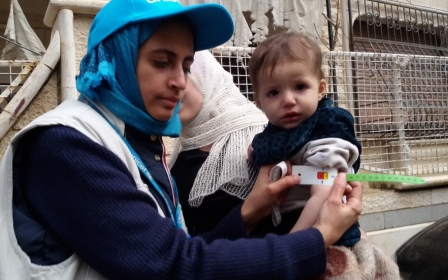Damascus rejects opposition 'conditions' at Syria peace talks

Damascus wants to end the violence ravaging Syria for nearly five years, according to a top government negotiator on Sunday, but he said the main opposition was "not serious" about UN-brokered peace talks.
The Syrian government "wants to put an end to the bloodshed," Damascus's envoy to the UN, Bashar al-Jaafari, said in Geneva.
But he lashed out at the opposition High Negotiations Committee (HNC), which arrived in Geneva on Saturday saying talks would only begin if Russia ended its bombing in Syria and government sieges were lifted.
The indirect talks were due to start on 25 January, but were postponed until Friday when Jaafari and his delegation sat down with the UN's envoy to Syria, Staffan de Mistura.
Jaafari said the government firmly rejected any "conditions" imposed by the opposition delegation, saying it would be a "violation" of Mistura's invitation to talks.
"The conference did not start on time because the opposition delegation is late. This is a sign that they are not serious," Jaafari said.
President Bashar al-Assad's government wanted "to stop the suffering of the Syrian people," he said. "We are ready to work to find a solution."
The problem, he said, was that the opposition delegation was "not credible," and that some among the team were considered "terrorists".
"We don't know who is taking part in the talks, neither does Mistura," he said. "We are not holding talks with terrorists. This is exactly why the special envoy insisted on holding indirect talks."
Syria's government uses the word "terrorist" to describe a host of armed opposition groups, including the Army of Islam rebel faction, which is a member of HNC.
The Syrian government also said on Sunday that a triple suicide bombing at a Shia shrine south of Damascus, which killed 50 people, was evidence that the opposition was linked to terrorists.
However, the Islamic State (IS) group, which is the enemy of both the HNC and the government, claimed it carried out the shrine attack.
Opposition meets Mistura
The HNC said it would not begin talks if the UN could not stop the bombing and siege tactics used by the Syrian government and its Russian ally.
"If the regime insists on continuing to commit these crimes then the HNC delegation's presence in Geneva will not be justified," coordinator Riad Hijab said.
"The delegation will inform Mistura of its intentions to withdraw its negotiating team if the UN and world powers are unable to stop these violations."
On Sunday, senior HNC negotiator Salim al-Muslet said his team would move 10 steps if it saw the Syrian government move one.
The medical charity Doctors Without Borders said on Saturday that 16 people had starved to death in Madaya due to a prolonged siege by government forces and in spite of the first aid convoy since October reaching the town earlier this month.
Their deaths bring to 46 the number who have died of starvation since December, and Doctors Without Borders warned that dozens more people were on the verge of death.
The US secretary of state, John Kerry, urged the HNC to drop its preconditions, but also accused Bashar al-Assad's forces of deliberately starving Syrian civilians.
"The town of Madaya is just an hour's drive from Damascus and yet its people have been reduced to eating grass and leaves," Kerry said.
"How have the regime and the militias that support it responded? By planting landmines and erecting barbed wire to keep relief workers out."
The people of Madaya are among more than 4.5 million people with "immense humanitarian needs" living in areas that are extremely hard to access because of fighting, according to the International Committee of the Red Cross.
Since the conflict began in March 2011, more than 260,000 people have been killed and half of the country's population have fled their homes, with millions exiled to neighbouring countries and beyond.
UN envoy Mistura on Sunday said he was "optimistic and determined" to see the Geneva talks succeed. "It's an historic occasion not to be missed."
New MEE newsletter: Jerusalem Dispatch
Sign up to get the latest insights and analysis on Israel-Palestine, alongside Turkey Unpacked and other MEE newsletters
Middle East Eye delivers independent and unrivalled coverage and analysis of the Middle East, North Africa and beyond. To learn more about republishing this content and the associated fees, please fill out this form. More about MEE can be found here.




